Tag: Food & Ag-Science Innovations
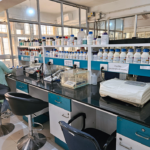
In Bihar, a TCI-Supported Lab Raises Awareness of Soil Health
One of TCI’s longest-running projects, “Optimizing Soil Health” established a partnership with the Dr. Rajendra Prasad Central Agricultural University (RPCAU) in Bihar that is educating young soil scientists and undertaking critical studies of soil health and agricultural production in Bihar…
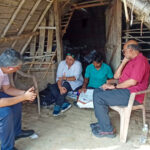
Matching Data with Reality
Shree Saha is passionate about data.
“For me, it’s matching reality and the data that I find to be quite exhilarating,” she says. “I realize that’s the nerd in me speaking, but I really like working with data quite a…
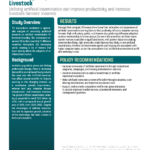
Increasing Adoption of Artificial Insemination for Livestock
This policy brief presents the results of a systematic review of existing research on the determinants of farmers’ use of artificial insemination for livestock breeding. TCI researchers examined 18 studies spanning 10 countries throughout the developing world, creating a list of factors that most heavily...
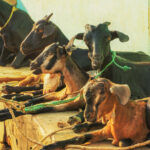
These Are the Keys to Promoting Artificial Insemination for Livestock
With the world’s population growing and dietary preferences changing, rising demand for animal-based food products like milk presents an opportunity for farmers in the developing world. Artificial insemination can help these farmers improve their productivity and increase their incomes, so…

Understanding the Determinants of Farmers’ Adoption of Artificial Insemination in Livestock
Abstract Read a policy brief based on this study. The adoption of artificial insemination (AI) in livestock is a crucial factor in enhancing breeding efficiency, livestock productivity, and income opportunities for farmers. However, the adoption of AI among farmers can vary significantly, influenced by a...

TCI Publishes 2023–24 Annual Report
The Tata-Cornell Institute for Agriculture and Nutrition (TCI) has published its 2023–24 Annual Report.
The report offers an in-depth look at the full range of TCI’s research and other activities, including projects like Zero-Hunger, Zero-Carbon Food Systems, and field research…
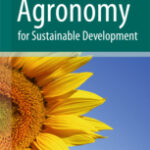
Transitions to Crop Residue Burning Have Multiple Antecedents in Eastern India
Abstract Far removed from the agricultural fire “hotspots” of Northwestern India, rice residue burning is on the rise in Eastern India with implications for regional air quality and agricultural sustainability. The underlying drivers contributing to the increase in burning have been linked to the adoption...

Agribusiness Expert Ram Kaundinya to Deliver Seminar on Biotechnology in India
UPDATED Oct. 30: A recording of Ram Kaundinya’s lecture is now available on YouTube.
Ram Kaundinya, a leading expert on management and agribusiness in India, will deliver a distinguished lecture at Cornell University on Tuesday, October 22, 2024, from 11:30…

Caretakers of Orphan Crops: Nurturing Resilience and Food Security
In agricultural research and development, “orphan crops” are invaluable food crops that have historically been overshadowed by larger staple grains like rice, wheat, and maize. Coarse grains, roots, tubers, and pulses such as millets, cassava, common beans, and others play…
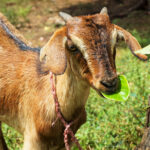
Improving Livelihoods Through Enhanced Goat Breeding
Goat rearing holds significant promise for smallholder farmers in India, offering resilience and income generation even during crop failure. However, reliance on natural breeding practices limits productivity due to issues like inbreeding and disease transmission. Artificial insemination presents a viable…

